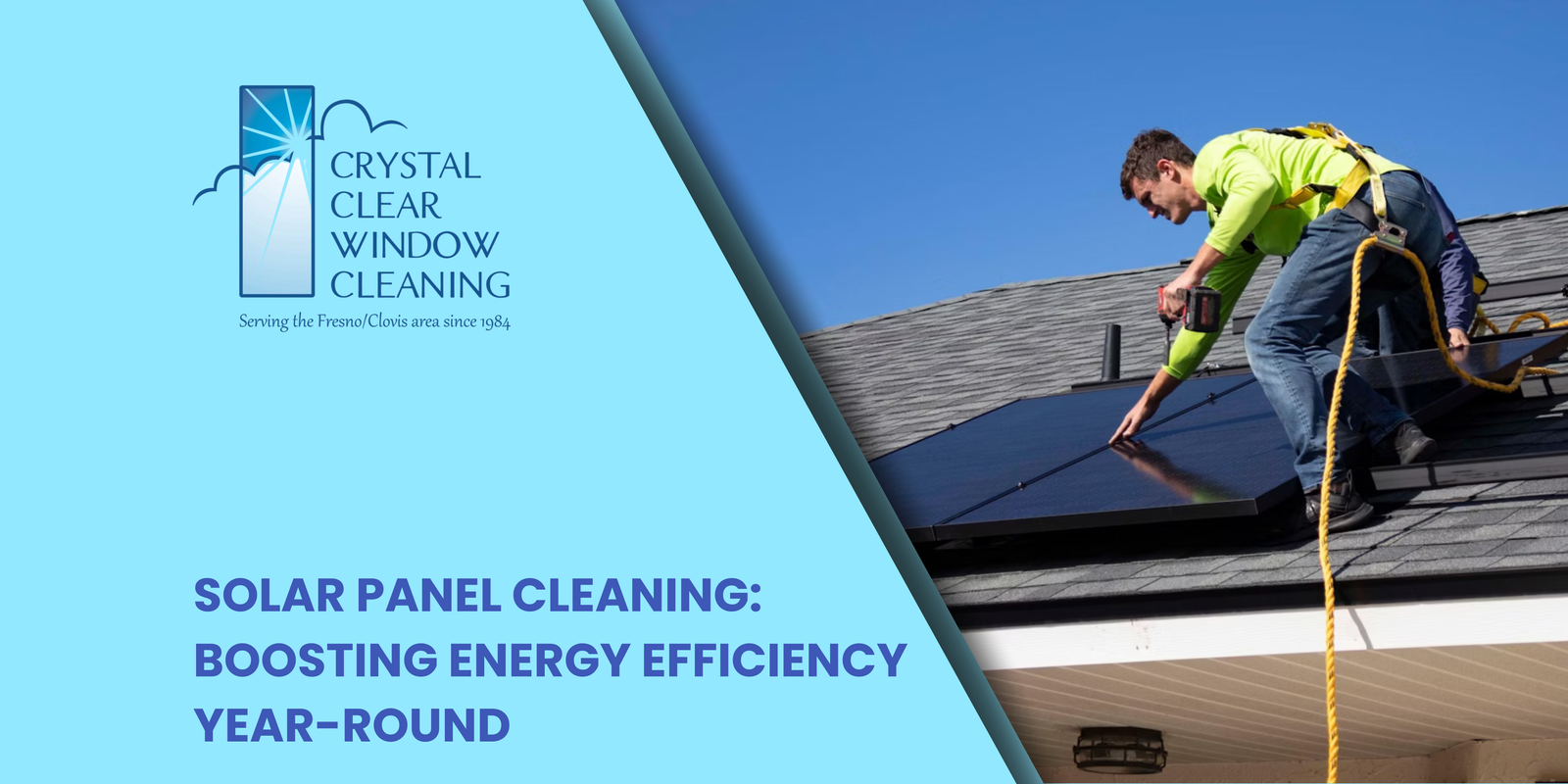Solar panels are a great investment in clean, renewable energy, providing your home or business with the power it needs while reducing energy bills and carbon footprint. However, like all outdoor equipment, solar panels are exposed to the elements, which can lead to dirt, dust, and other debris accumulating on their surfaces. Over time, this buildup can reduce the efficiency of your panels and impact their ability to generate power. Regular solar panel cleaning is a simple, effective way to maintain their performance and boost energy efficiency year-round. In this article, we’ll explore the importance of Solar Panel Cleaning and the best practices for keeping your panels in top condition.
1. Why Solar Panel Cleaning is Important
Solar panels work by absorbing sunlight and converting it into electricity. Dust, dirt, bird droppings, and other debris can block sunlight from reaching the solar cells, reducing the panels’ ability to generate power. This can lead to a significant drop in energy output, especially in regions with frequent dust storms, high pollen counts, or heavy rainfall.
Even a small amount of dirt can have a noticeable impact on the efficiency of your solar panels, potentially lowering their performance by up to 25%. By ensuring that your panels are kept clean and free from obstructions, you can maintain their optimal efficiency and prolong their lifespan.
2. How Often Should You Clean Your Solar Panels?
The frequency of solar panel cleaning depends on a few factors, including your location, the weather, and the type of solar panels you have. In general, cleaning your solar panels twice a year is a good starting point. However, there are some situations where more frequent cleaning may be necessary:
- Dusty Environments: If you live in a dry, dusty area, your solar panels may accumulate dirt more quickly and require cleaning every 3 to 6 months.
- Heavy Pollen or Tree Debris: Areas with high levels of pollen or trees that shed leaves and branches near your solar panels may need more frequent cleaning.
- Heavy Rainfall: If you live in a region with frequent rainfall, the rainwater may help wash away dirt and debris, reducing the need for regular cleaning.
- Urban Areas: In cities with high pollution or near construction zones, your panels may require more frequent cleaning due to the increased buildup of pollutants.
By assessing the environment around your solar panels, you can determine the optimal cleaning schedule for your system.
3. How to Clean Solar Panels Safely
While solar panel cleaning is relatively simple, it’s important to follow the right procedures to avoid damaging your panels. Here are some tips for cleaning your solar panels safely:
- Use Soft, Non-Abrasive Materials: Always use a soft brush or microfiber cloth to avoid scratching the surface of your solar panels. Avoid using abrasive materials that could damage the protective coating on the panels.
- Avoid Harsh Chemicals: When cleaning your panels, avoid using harsh chemicals or detergents that could damage the surface. Instead, use mild soap and water, or opt for a specialized solar panel cleaning solution.
- Clean in the Early Morning or Late Afternoon: Cleaning solar panels in the heat of the day can cause water to evaporate too quickly, leaving streaks or mineral deposits on the surface. For best results, clean your panels early in the morning or late in the afternoon when the temperature is cooler.
- Use a Garden Hose: If your solar panels are only slightly dirty, you can use a garden hose to rinse them off. Avoid using a pressure washer, as the high pressure can damage the panels or cause water to seep into the electrical components.
- Hire a Professional: If you’re unsure about cleaning your solar panels yourself or if they are located in difficult-to-reach areas, it’s best to hire a professional solar panel cleaning service. Professionals have the experience and equipment needed to clean your panels safely and effectively.
4. The Benefits of Regular Solar Panel Cleaning

Investing in regular solar panel cleaning can yield several long-term benefits for your solar energy system. Here are some of the top advantages:
- Improved Energy Efficiency: Clean panels are more efficient at absorbing sunlight, which translates to more energy production. Regular cleaning ensures that your panels can operate at peak efficiency, maximizing your energy savings.
- Extended Lifespan: Keeping your solar panels clean helps to prevent dirt and debris from causing long-term damage to the panels. Regular maintenance can extend the life of your panels and reduce the need for costly repairs or replacements.
- Increased Return on Investment (ROI): By ensuring that your solar panels operate efficiently, you can increase the return on your investment. The more energy your panels produce, the greater the savings on your energy bills, which can help offset the initial installation cost.
- Preservation of Warranty: Many solar panel manufacturers require that the panels be maintained and cleaned regularly to keep the warranty valid. By following proper cleaning procedures, you can ensure that your warranty remains intact in case of any future issues.
5. When to Call a Professional for Solar Panel Cleaning
While regular cleaning can be done yourself, there are times when it’s best to hire a professional solar panel cleaning service. If your panels are located in hard-to-reach areas or are too high to safely access, it’s safer to have professionals handle the cleaning. Professionals are also equipped with the proper tools and cleaning solutions to ensure the job is done correctly, without causing any damage to the panels or their components.
Call to Action
Additionally, if your solar panels are heavily soiled or have accumulated tough stains, professional cleaning services can help restore their efficiency and appearance. Contact us today!

